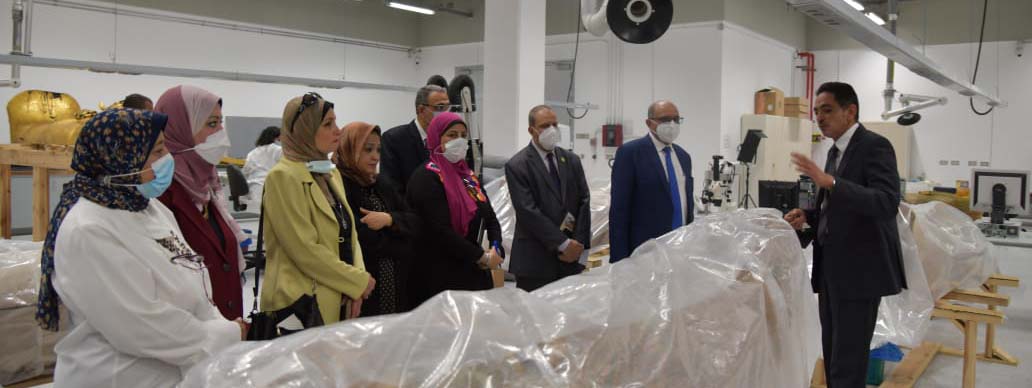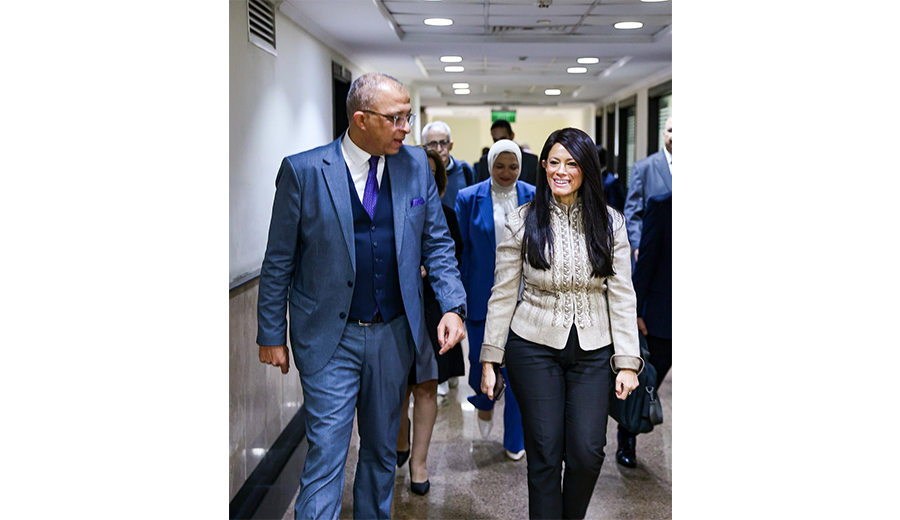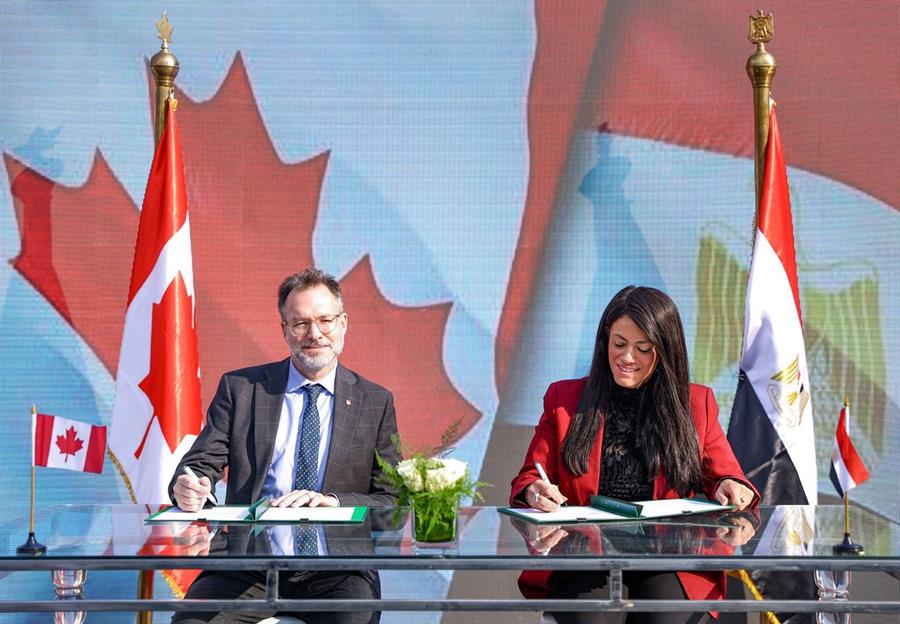Delegations from Ministry of Planning and Economic Development, National Investment Bank visit the Grand Egyptian Museum

24 October 2021
The delegation of the Ministry of Planning and Economic Development and the National Investment Bank visited the Grand Egyptian Museum, within the framework of field visits to follow up on the projects of the investment plan for the fiscal year 2021/2022 and to find out what has been accomplished and to know the obstacles that prevent the implementation of these projects and work to solve them.Hala El-Said , Minister of Planning and Economic Development, indicated that the Grand Egyptian Museum is the largest museum of antiquities in the world, which helps give a great boost to the tourism sector in Egypt, explaining that the total approved for the museum in 2021/2022 fiscal year plan is estimated at EGP 4.1 billion. The first and second phases of rehabilitating the project land and the Archeology Restoration Center have been completed.During the visit of the delegation of the Ministry of Planning and Economic Development headed by Mr. Ismail Youssef, the supervisor of the human and social development sector, Major General Atef Moftah, the general supervisor of the Grand Egyptian Museum project, was interviewed, and the works that will be completed in the current fiscal year plan (the engineering works of the project - Tutankhamun exhibition hall.The tour of the museum included a visit to the Obelisk Square, the lobby with facades for investment areas (bazaar - restaurants), the upper floor with a cinema, theater, and educational center, the great lobby containing huge pieces such as the statue of Ramses, the great staircase that leads to the historical galleries and Tutankhamun's hall. The delegation also inspected the building of King Khufu's boat display outside the museum building, in addition to visiting the Antiquities Restoration Center on the Museum campus, which consists of 6 antiquities restoration laboratories and 20 treatment and preventive analysis and maintenance laboratories equipped with the latest scientific equipment.









